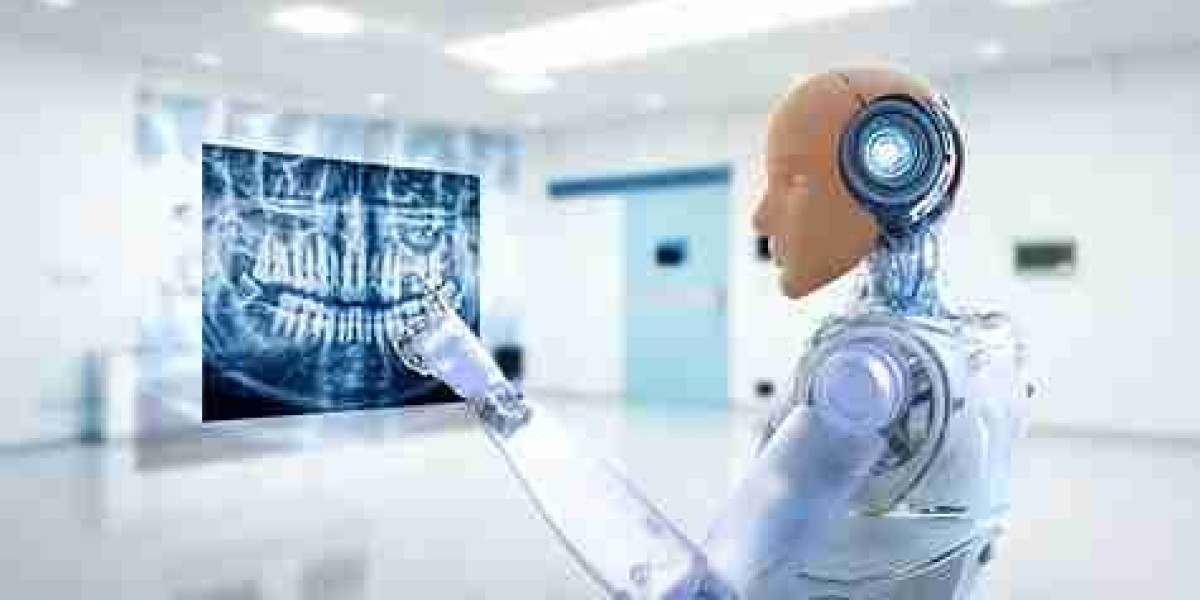There have been significant advancements in dentistry, particularly in the field of dental implants. What used to be lengthy and invasive is now a streamlined, technology-driven process delivering reliable, lasting results. Digital scanning and guided implant placement improve precision, fit, and healing times. These innovations reduce complications and enhance success rates, making treatment more accessible for patients. This blog explores how cutting-edge technology is transforming dental implants, benefiting both patients and professionals. Understanding these advancements highlights the growing role of innovation in modern dentistry, offering improved outcomes and a smoother experience for those seeking effective tooth replacement solutions.
The Evolution of Dental Implants
Dental implants have significantly evolved since their initial development.The mid-20th century saw a breakthrough in implant dentistry with the discovery that titanium could bond with bone, a process called osseointegration. Since then, advancements in materials and techniques have transformed how implants are placed and how successful they are.
Today’s implant procedures benefit greatly from digital technology. Dentists use 3D scanning and computer-guided surgery to plan each implant with precision, ensuring optimal placement and reducing risks. This leads to faster healing and better long-term outcomes.
Key benefits of modern dental implant technology include:
- Accurate implant positioning
- Minimally invasive surgery
- Reduced recovery times
- Enhanced comfort during the procedure
- Improved durability and success rates
These innovations have made dental implants a dependable, effective choice for restoring missing teeth, improving patients’ confidence and quality of life.
Key Technological Innovations in Implant Dentistry
The combination of software and hardware has introduced a host of tools that significantly enhance how implants are planned and placed. Some of the most influential innovations include:
1. 3D Imaging and CBCT Scans:
Cone Beam Computed Tomography (CBCT) offers detailed 3D visualisation of the jaw, allowing dentists to examine bone structure, density, and nerve locations. This lowers the chance of complications and guarantees precise placement.
2. CAD/CAM Technology
With Computer-Aided Design and Manufacturing, crowns, bridges, and abutments can be customised precisely for each patient, offering a better aesthetic and functional fit.
3. Guided Implant Surgery
Using digital templates, guided surgery allows implants to be placed with millimetre precision. This reduces chair time, surgical trauma, and post-operative discomfort.
4. Digital Workflow Integration
Seamless communication between dental practices, laboratories, and imaging systems results in faster turnaround times and improved consistency in patient outcomes.
These tools not only improve surgical accuracy but also boost confidence in patients, especially those treated by an emergency dentist in Ipswich where time and precision are critical.
Materials Matter: Stronger, Biocompatible Implants
Beyond the tools, materials used in implants have also evolved. Titanium remains the gold standard, but newer variations with treated surfaces enhance bone adhesion. Additionally, zirconia implants are gaining popularity due to their metal-free composition and natural tooth-like colour.
Key developments in implant materials include:
- Surface Modifications: Implants with nano-textured or coated surfaces promote faster and stronger bone integration.
- Zirconia Options: Ideal for patients with metal allergies or aesthetic concerns in front teeth.
- Stronger Alloys: Used to enhance durability, especially for implants in high-bite-force areas like molars.
With the advancement of materials, patients opting for a dental implant in Ipswich benefit from increased durability and reduced risk of failure, even under challenging oral conditions.
AI and Machine Learning in Implant Planning
Artificial Intelligence (AI) and machine learning are becoming integral to diagnostic and treatment planning in dentistry. These technologies analyse large datasets to support clinical decision-making and optimise outcomes.
Benefits of AI integration include:
- Risk Assessment: Predicts complications based on patient history and bone analysis.
- Site Selection: Suggests optimal implant positioning with minimal human error.
- Treatment Simulation: Provides a preview of the expected results prior to starting the procedure.
These tools are particularly valuable for an emergency dentist in Ipswich, where quick yet accurate planning is essential for effective intervention.
Trends in Patient Outcomes and Implant Longevity
With technological support, dental implant success rates are at an all-time high. Traditionally, implants had an 85–90% success rate, but modern techniques have pushed that figure closer to 98%. Healing times have shortened, and fewer post-operative complications occur, thanks to precision placement and better patient-specific planning.
Here’s a comparison of traditional vs tech-assisted dental implant outcomes:
Feature | Traditional Implants | Tech-Assisted Implants |
Average Success Rate | 85–90% | 95–98% |
Healing Time | 4–6 months | 2–4 months |
Custom Fit and Comfort | Moderate | High |
Risk of Nerve Damage | Higher | Lower |
These improvements highlight why so many people are now choosing tech-enhanced dental implant Ipswich procedures for both emergency and planned treatments.
Video link- Restore Your Smile with Advanced Dental Implants!
The Future: What’s on the Horizon?
The future of dental implants is being shaped by even more exciting innovations. Researchers and developers are working on:
- Bioactive Implants: Surfaces that encourage bone growth and reduce healing time.
- Smart Implants: Equipped with sensors to monitor pressure, temperature, and signs of infection.
- Robotics and Automation: Robotic arms guided by AI to place implants with unmatched precision.
These trends are expected to further boost implant success rates, reduce the cost and invasiveness of treatment, and make implants accessible to a broader population.
Smarter Technology in Action: A Patient-Centred Experience
Technology is not just transforming the clinical side, it’s reshaping the entire patient experience. The convenience, speed, and predictability offered by today’s implant systems make them a favourable choice for individuals who might have previously delayed treatment.
Why patients benefit from smarter implant technology:
- Reduced anxiety through visual simulations and planning
- Fewer appointments and shorter treatment timelines
- Improved cosmetic outcomes with natural-looking restorations
- More predictable and comfortable recovery
For anyone experiencing sudden tooth loss or complications, consulting an emergency dentist in Ipswich equipped with advanced implant planning tools can significantly reduce the time between diagnosis and full recovery.
Conclusion
Technological advancements are redefining what patients can expect from dental implants, stronger materials, smarter planning, faster healing, and longer-lasting results. From AI-powered diagnostics to guided surgical procedures and custom-designed prosthetics, each innovation contributes to safer, more successful treatments.At Ipswich, we’re proud to embrace the future of dentistry, combining compassionate care with the latest technology to help every patient achieve a natural, healthy smile that lasts. Whether you’re planning your first implant or require urgent care, our experienced team is ready to support you throughout every stage of the process.







